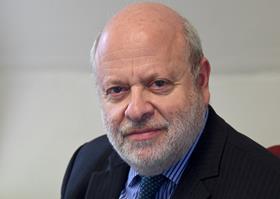The European Commission is preparing for the handover to a new set of commissioners. We will doubtless leave the EU sooner or later, unless the Lib Dems win the next election. Yet what the EU does will continue to have a powerful effect on us.

The commissioners are yet to be interviewed and approved as a whole by the European Parliament. But there are some we should watch.
Phil Hogan from Ireland will be the new trade commissioner, in charge of the future post-Brexit trade negotiations. Many have commented on his Irish nationality, given the prominence of Ireland in the Brexit negotiations. The Taoiseach Leo Varadkar said that ‘it is a definite advantage to have an Irish person in charge of this crucial brief over the next five years’.
While we may smile or gnash our teeth, according to political preference, the important part for lawyers lies in his mission letter. Each of the new commissioners was given such a letter by the president-elect of the commission, Ursula von der Leyen, describing what was expected of them. There were clear signals in the Hogan letter about the future policies of the EU towards the World Trade Organisation (WTO):
- Europe’s place is at the heart of the rules-based multilateral system - i.e. the EU will try to stand up against President Trump’s hostility towards multilateral institutions. This is good news for the UK post-Brexit, and for City solicitors trying to sell their services abroad.
- A top priority will be to lead the reform of the WTO, including on dispute settlement, where the Trump administration has starved the system of judges, so leading to its near collapse. Specifically, Phil Hogan has been asked to ‘include upgrading the EU’s Enforcement Regulation to allow us to use sanctions when others adopt illegal measures and simultaneously block the WTO dispute settlement process’, which takes direct aim at President Trump’s policy.
Another of the incoming commissioners is Margrethe Vesthager, who will be executive vice-president for a Europe fit for the digital age. She is currently the competition commissioner, which will continue to be one of her roles in her new term.
She addressed her new responsibilities in an interesting speech she gave last week at the Standing Committee of the Council of Bars and Law Societies (CCBE).
Her message was that competition law is a necessary tool to combat the strengths of the internet giants, but not sufficient in itself. Regulation in also required. This is how she put it:
‘When we enforce the competition rules, we balance out the power in that negotiation, so consumers get a fair deal. But we don’t get to say what the final deal should be. So if, as a society, we want to lay down fundamental standards – if we want to define the market, to set out what’s acceptable and what isn’t – then what we need is not more competition enforcement. We need regulation.’
This is important because it is widely acknowledged that the only effective global regulator at the moment of the internet giants is the EU, largely due to Margrethe Vestager’s previous efforts. The UK on its own will not be able to tame them, and so we will be advised to watch what she does in the future.
She also raised alarm in her speech about the way that the internet giants use the data that they harvest from us. This is a notorious practice, given an interesting UK twist this week when it was revealed that the government is planning to harvest data about those who use its ‘gov.uk’ website, causing some to worry about its future use. I suspect that there will be plenty of work for lawyers in this governmental move.
The new justice commissioner is Didier Reynders, the Belgian foreign minister and deputy prime minister. Justice is not seen as a top ranking job in the new Commission organigramme, and he will report into the new commissioner for values and transparency (Vera Jourova, who is the outgoing justice commissioner).
Here is something which does not bode well for the future vote on selected commissioners. It was reported a few days ago that Didier Reynders faces a probe on allegations over claims of corruption and money laundering in the Democratic Republic of Congo, allegations he denies. This is not a good look for a justice commissioner.
On top of that, a number of other commissioners-designate face their own legal problems: the Romanian candidate was implicated in a corruption case in 2017, the Polish one is under investigation by the EU’s anti-fraud office, and the French one was interviewed by French police last week in a case involving the misuse of EU funds.
(Before we crow, remember that our own prime minister is threatening to break the law.)
Jonathan Goldsmith is Law Society Council member for EU matters and a former secretary general of the Council of Bars and Law Societies of Europe. All views expressed are personal and do not necessarily reflect the views of the Law Society Council































No comments yet